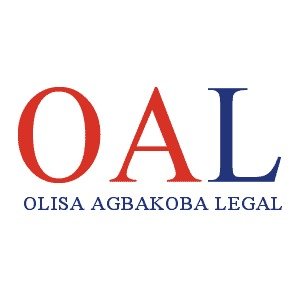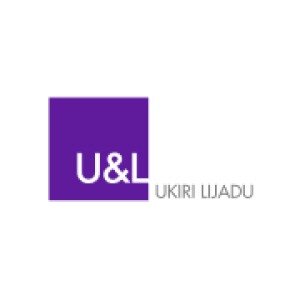Best Faith-Based Law Lawyers in Lagos
Share your needs with us, get contacted by law firms.
Free. Takes 2 min.
List of the best lawyers in Lagos, Nigeria
About Faith-Based Law in Lagos, Nigeria
Faith-Based Law in Lagos, Nigeria, refers to the legal system's incorporation of religious laws, particularly Islamic and customary laws, alongside statutory law. This legal framework primarily affects marriage, divorce, inheritance, and other family matters. Due to Lagos's diverse cultural and religious population, faith-based principles often influence legal proceedings within localities that recognize such customs. Understanding these nuances is essential for individuals navigating legal issues governed by religious doctrines.
Why You May Need a Lawyer
Individuals may require legal assistance in Faith-Based Law for several reasons, including navigating the complexities of religious-based family matters such as marriage contracts or dissolution, issues of inheritance under Islamic or customary laws, custody or guardianship disputes that consider religious tenets, resolving conflicts between statutory and religious legal codes, and addressing discrimination or human rights issues within a religious context. Legal counsel ensures that individuals uphold their rights while respecting religious provisions.
Local Laws Overview
In Lagos, Nigeria, several local laws impact Faith-Based Law. The Marriage Act governs statutory marriages, while the Matrimonial Causes Act addresses divorce proceedings. However, Islamic personal law applies to Muslims engaging in marriage, divorce, and inheritance cases. Customary laws also play a role, varying significantly across different ethnic groups. Lagos recognizes the co-existence of statutory, customary, and Sharia laws, making legal interpretation complex and highlighting the need for expert legal advice.
Frequently Asked Questions
What is Faith-Based Law?
Faith-Based Law incorporates religious laws or principles, like Islamic or customary laws, into the legal framework, especially in family-related issues.
Can non-Muslims be subjected to Islamic Law in Lagos?
Generally, Islamic Law applies to Muslims. Non-Muslims are not subjected to it unless they voluntarily choose to be bound by it in specific matters.
How does Faith-Based Law affect marriage in Lagos?
Faith-based elements can influence marriage through religious ceremonies that may require additional compliance with statutory law to gain legal recognition.
What determines the applicable law in inheritance matters?
The religion of the deceased often determines whether Islamic, customary, or statutory law governs inheritance distribution.
Is it possible to resolve disputes involving Faith-Based Law outside the courts?
Yes, disputes can often be resolved through mediation or arbitration within religious or community structures before resorting to formal legal proceedings.
What rights do women have under Faith-Based Law in Lagos?
Rights can vary, heavily influenced by the specific religious or customary laws in question, but Lagos promotes gender equality under statutory provisions.
Can religious beliefs override statutory laws?
While religious beliefs are respected, statutory laws generally take precedence, particularly where human rights issues are concerned.
How are custody matters decided under Faith-Based Law?
Custody decisions often consider the child's welfare through the lens of religious or customary beliefs of the family involved.
Are there special courts for Faith-Based Law cases?
Yes, Sharia Courts handle cases for Muslims regarding personal law matters, and Customary Courts deal with cases under customary law.
What should one do if they face religious discrimination?
It is advisable to seek legal counsel to address potential violations of human rights or constitutional protections against discrimination.
Additional Resources
For further assistance on Faith-Based Law in Lagos, consider contacting the Nigerian Bar Association, Lagos State Ministry of Justice, or community-specific legal aid services. Additionally, the Sharia and Customary Courts provide resources relevant to their jurisdictions. NGOs focusing on human rights can also offer guidance, especially in cases involving discrimination or personal rights violations.
Next Steps
If you require legal help, start by consulting a lawyer with expertise in Faith-Based Law. They can guide you on the applicable legal framework and potential resolutions. Gather all relevant documents related to your case and schedule an initial consultation. Consider seeking referrals from community organizations or legal firms specializing in religious or customary law to ensure you find qualified assistance. Stay informed about your rights and obligations under both your religious beliefs and statutory laws to make informed decisions.
Lawzana helps you find the best lawyers and law firms in Lagos through a curated and pre-screened list of qualified legal professionals. Our platform offers rankings and detailed profiles of attorneys and law firms, allowing you to compare based on practice areas, including Faith-Based Law, experience, and client feedback.
Each profile includes a description of the firm's areas of practice, client reviews, team members and partners, year of establishment, spoken languages, office locations, contact information, social media presence, and any published articles or resources. Most firms on our platform speak English and are experienced in both local and international legal matters.
Get a quote from top-rated law firms in Lagos, Nigeria — quickly, securely, and without unnecessary hassle.
Disclaimer:
The information provided on this page is for general informational purposes only and does not constitute legal advice. While we strive to ensure the accuracy and relevance of the content, legal information may change over time, and interpretations of the law can vary. You should always consult with a qualified legal professional for advice specific to your situation.
We disclaim all liability for actions taken or not taken based on the content of this page. If you believe any information is incorrect or outdated, please contact us, and we will review and update it where appropriate.














